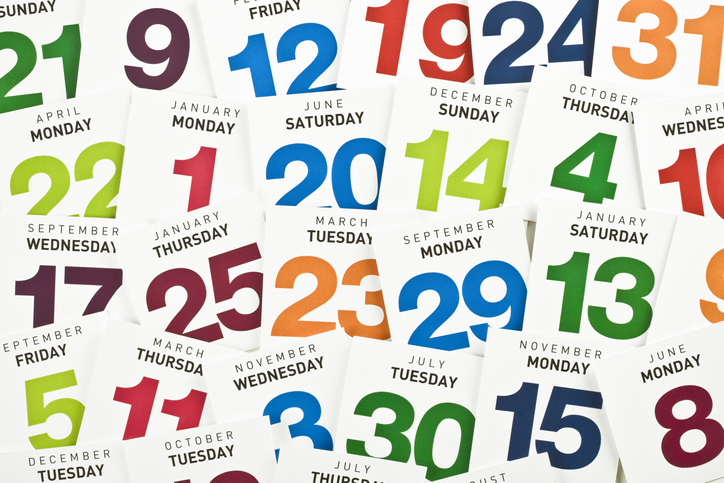Home > News > Counselor's Corner: Drug-Free Holiday Celebrations for African Americans Seeking Recovery
As we wrap up the last holiday season and launch the new year, many counselors may be working with African American clients who have relapsed.
The holiday season from Thanksgiving through New Year’s is filled with high-risk situations that lead to relapse. It can start with a holiday we've created: Blackout Wednesday, the Wednesday before Thanksgiving, also known as "Drinksgiving." Blackout Wednesday is among the heaviest binge drinking days of the year, with the highest number of deaths related to drunk driving. (Rayno, 2017). Another "created" holiday that celebrates drug use is April 20 (4/20), or National Weed Day. Adolescents and young adults in recovery are particularly vulnerable to a return to drug use on this day.
If we can create drug-using holidays, we can also create drug-free holidays!
When working with clients who have relapsed over the holidays, counselors can ask some simple questions:
Creating Drug-free Holidays
Below are some examples of drug-free holidays that can be created to honor African American history and celebrate recovery. Take January, for example:
New Year’s Day: How about a day of gratitude for another day or year of recovery surrounded by others in recovery?
Muhammad Ali Day, January 8: Considered by many to be the greatest boxer of all time, Ali was stripped of his heavyweight title for standing up for principles he believed in. Clients can be encouraged to use this day to stand up for a principle or cause important to their recovery.
Afeni Shakur, January 8: Afeni Shakur was a woman in long-term recovery and the mother of rapper Tupac Shakur. In recovery, Afeni founded the Tupak Shakur Foundation and the Tupak Shakur Center for Performing Arts. A celebratory ritual for a client in recovery could be reading her biography and recovery story: Afeni Shakur: Evolution of A Revolutionary.
Dr. Martin Luther King, Jr. Day: January 15: On this day, clients can be encouraged to view tapes of Dr. King's speeches or read his quotes or books to internalize his courage in the midst of adversity. Clients can also honor Dr. King’s legacy by making this a day of service as a person in recovery.
February: Black History Month
Many people commit to “Dry January.” Ask your clients to extend the commitment in February and remain alcohol and drug free in honor of Black History Month. The month celebrates the birthdays of many African American trailblazers, including:
Rosa Parks Day, February 4
Hank Aaron Day, February 5
Frederick Douglass Day, February 14: According to historian William White, Frederick Douglass was among the first prominent Americans in recovery from alcoholism (White, 2014). Douglass believed that alcohol was used to control the enslaved, so he gave up alcohol and became a leader of the Black Temperance Movement. Douglass’s birthday also happens to be Valentine’s Day–often celebrated by some with champagne. Encourage clients to honor Frederic Douglass on this day with a drug-free celebration..
Throughout the Year
The calendar year offers almost endless opportunities to create holidays that honor the legacies of African Americans by maintaining recovery:
Malcolm X Day, May 19: Malcolm X initiated recovery while incarcerated and was in long-term recovery before he died. Malcolm spent his life in recovery as an advocate and helped other African Americans with their recovery. Like Frederick Douglass, Malcolm’s pathway of recovery included advocacy. Malcolm X Day could be a celebration of the multiple pathways of recovery.
Madam C. J. Walker Day, December 23: Madam C. J. Walker was the first American woman self-made millionaire, building a hair care products empire for African American women. Clients can be asked to use this day as an opportunity to visualize their purpose in recovery and begin to plan a business while in recovery. This sober holiday two days before Christmas and nine days before New Year’s can help reinforce a commitment to recovery during the relapse-prone season.
Harriet Tubman Day: Harriet was born into slavery, so there is no official day for her birthday. Pick a day! Celebrate Harriet Tubman's courage and the enormous love she had for enslaved Africans enabled her to make 19 trips from the south to the north as a leader of the underground railroad, guiding hundreds to their freedom.
Birthdays: Encourage clients to celebrate their own birthdays alcohol-and drug-free.
A few other alcohol- and drug-free holidays to create include:
Implications Across Culture
Alcohol- and drug-free celebrations cross cultures, and community-wide commitment can help reinforce recovery. In March every year, communities across the country host sober St. Patrick's Day Celebrations. LGBTQIA Communities organize sober celebrations during June, Pride Month. And many Native American communities observe major holidays with sober powwows.
Observing drug-free holidays throughout the year will help clients seeking recovery build skills and strategies that they can use to avoid relapse when the high-risk holidays come around again.
January is the perfect month for counselors to talk with their African American clients about creating new alcohol-and drug-free celebrations that can increase cultural pride, teach history, and help maintain recovery every day of the year, holidays included.
Happy New Year!
References
Rayno, A. (2017, November 22). How the night before Thanksgiving became the 'biggest drinking day of the year'. Star Tribune. Retrieved January 20, 2022, from https://www.startribune.com/how-the-night-before-thanksgiving-became-the-biggest-drinking-day-of-the-year/459149303/
White, W. L. (2014). Slaying the dragon: The history of addiction treatment and recovery in America (p. xvi). Bloomington, IL: Chestnut Health Systems/Lighthouse Institute.
